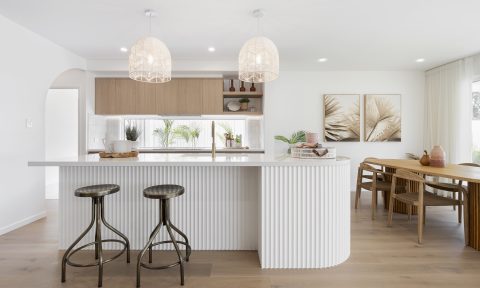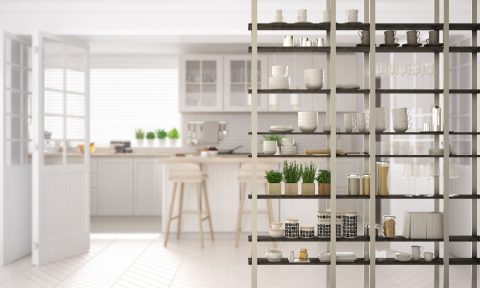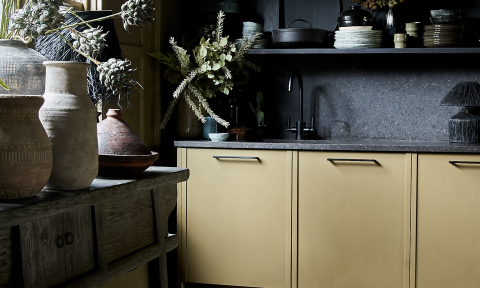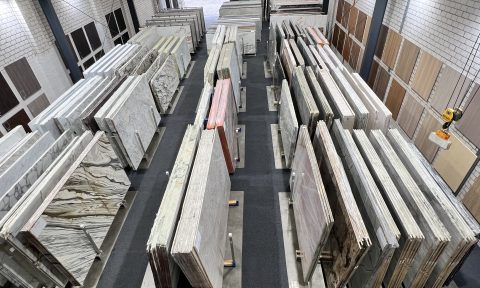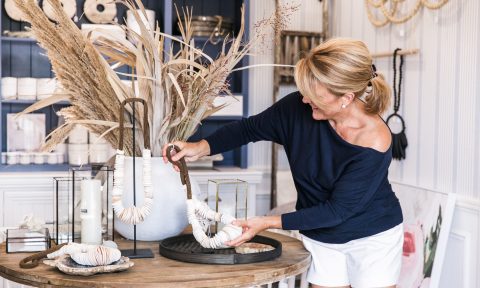Priyanka Rao from luxury hardware boutique Spark & Burnish, shares how to clean your cabinet handles (with most of this advice also applying to your taps) so they’re safe and clean but also looking their best and keeping their sparkle!
You’re at home, reading or watching the news and likely cleaning everything to ensure no virus remains in your home. Regular sanitising of hard surfaces such as your cabinet handles and door knobs could go a long way in preventing the spread.
But if you’ve bought high quality hardware, there are special treatments required to ensure these last beyond this crisis. In general, we would not recommend using any harsh solvents or abrasive cleaners as this could affect the protective coatings such as plating, powdercoating, wax and lacquer. For most of these finishes a damp microfibre soft cloth and very mild dishwashing detergent is all that is recommended, taking care that nothing contains bleach.
Here’s our guide through all the finishes that we hope will assist you:
SOLID COPPER, BRASS AND BRONZE
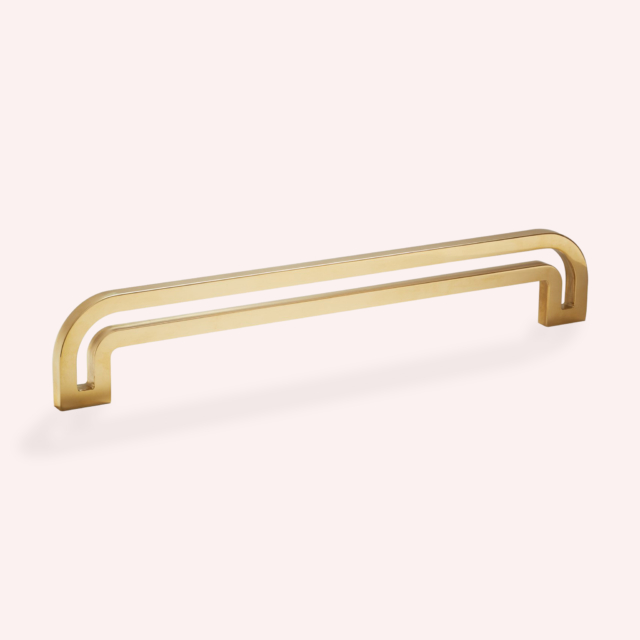
These finishes are antimicrobial by nature and will disinfect themselves in four hours so we highly recommend these finishes if you’re in the middle of making selections and are immuno-compromised. A recent US Government funded study found that the COVID-19 virus can survive up to three days on steel and plastic, 24 hours on cardboard and four hours on copper.
Copper and its alloys brass and bronze, are susceptible to tarnishing when they are not lacquered, known commonly as a ‘living finish’. To work out if it’s solid brass, put a magnet next to your handle. If it sticks then it is not solid brass.
There are a few options for cleaning ‘unlacquered’ products (this will apply to your tapware too):
- Create a paste from equal parts of flour, white distilled vinegar and salt. Gently rub the paste onto your handles and allow it to remain for a few minutes before buffing the paste off with a soft cloth.
- Take a ripened lemon, cut in half and coat the exposed inside pulp with salt. Rub the coated surface upon your brass or copper to scrub away dirt, bacteria and tarnish, then follow up with a cotton cloth to remove any residue.
After cleaning your unlacquered handles, you can protect them from future tarnishing by rubbing a thin layer of olive, lemon, linseed, or mineral oil over them. Just dab a clean cloth or paper towel in an oil of your choice, then rub it along the surface of the brass handles.
For ‘lacquered’ or ‘polished’ finishes we would recommend to remove surface dust with a soft cloth then use a very mild solution of soapy water. Once clean, dry with a soft cloth. A light coating of natural wax done monthly will then give them an extra bit of protection.
Never use commercial or harsh cleaners on this finish as this will damage them.
ELECTROPLATED IRON, STEEL OR ZINC
These should only be cleaned with warm soapy water and a soft microfibre cloth. Rough polishing or using abrasives is likely to remove the brass plating and damage your hardware.
BLACKENED STEEL
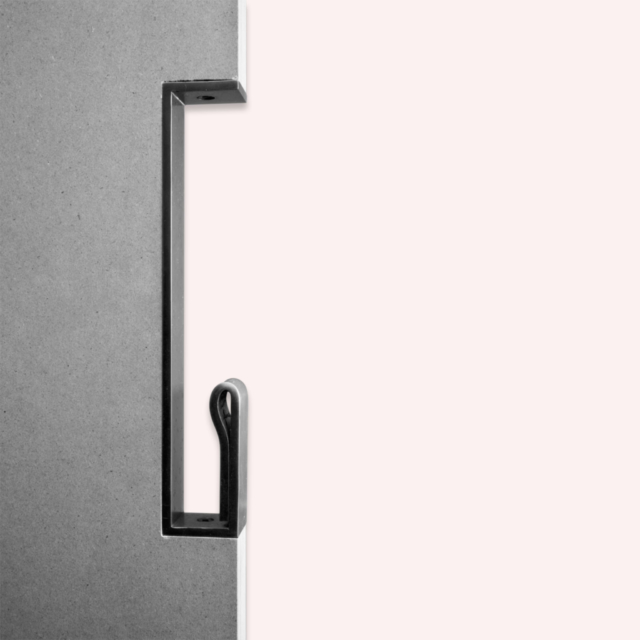
Blackened steel is a stunning finish beloved by architects such as Tom Kundig whose hardware collection we represent. Where it comes to cleaning, special care must be taken.
While our blackened steel products are sealed with oil and wax, over time they become less moisture resistant. This is another ‘living finish’ so will develop its own character over time and patina with use.
In your regular cleaning we would recommend wiping with a slightly damp soft cloth and buffing immediately with a dry cloth. It’s critical you don’t use any household cleansers with bleach or ammonia. You can use very diluted ‘Dawn’ dishwashing liquid if you like and ensure a regular routine of waxing your handles with ‘Carnauba’ paste wax.
If the surface starts rusting, we recommend rubbing the affected area lightly with very fine Scotch Brite, and re-sealing with a lightly buffed coating of carnauba paste wax.
STAINLESS STEEL
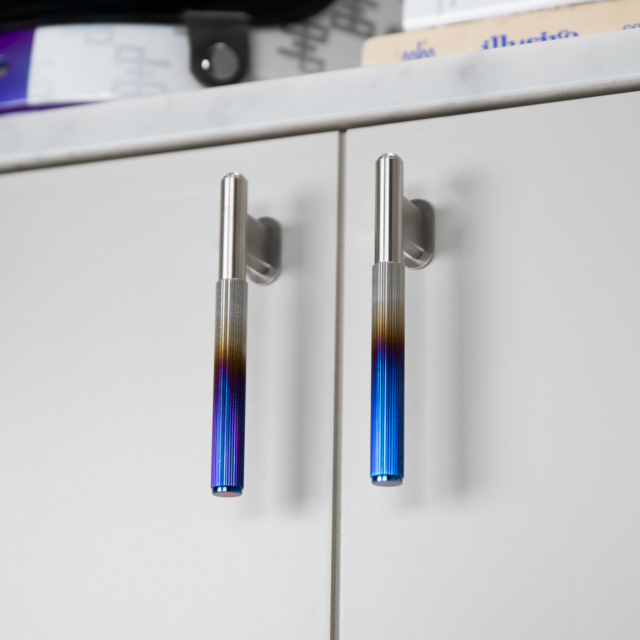
With stainless steel, we recommend a soapy damp soft cloth with cold water and then a second rinse with clean cold water. Be careful with household cleaning products and abrasive steel wool as these damage the surfaces, especially anything containing chlorine bleach or chloride.
If there is any residue or gunk we recommend a mix of olive oil and vinegar till everything is shiny again. Another option is soda or WD40 for cleaning any dirt out.
PLASTIC
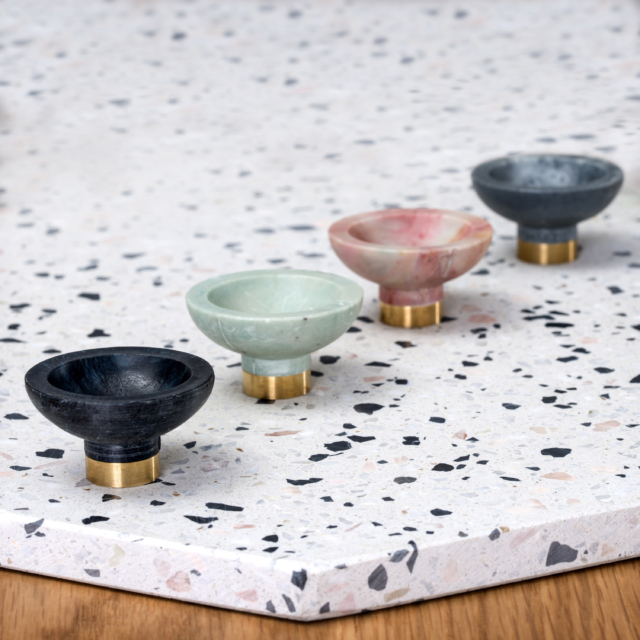
We have a collection made from ocean plastic and often get asked how best to clean. Most general purpose cleaners can be used however be careful with strong solvents. Just spray a bit onto the surface, let it soak for a minute and then dry and polish with a clean cloth.
POWDERCOATED FINISHES
A damp cloth and mild detergent is all that is required. The finishes may chip with rough handling so take care.
We hope this assists you maintain your hardware and keep your home or office as hygienic as possible. Of course washing your hands is also recommended. For any further questions please feel free to contact us.


